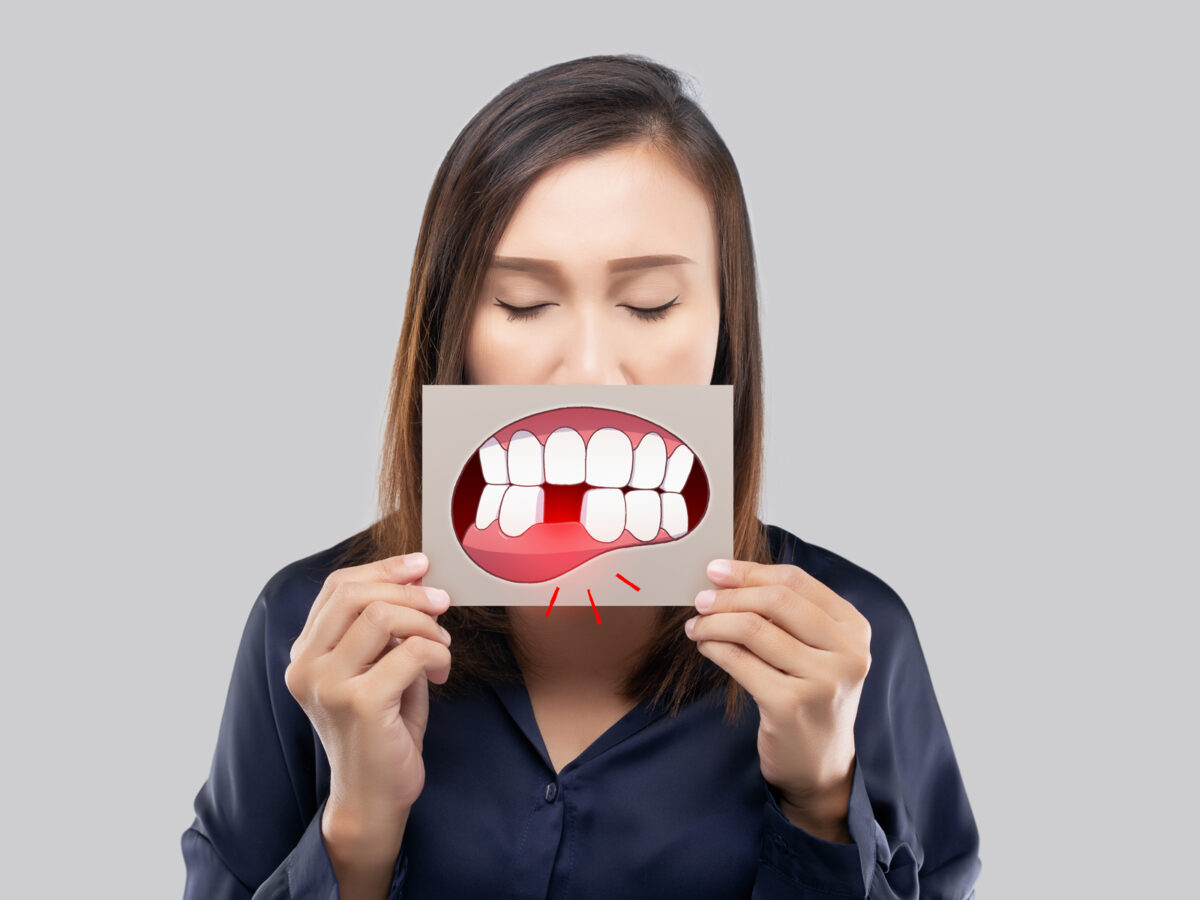Blog
Dental hygiene tips for healthy teeth & gums

How long does it take for gum disease to cause tooth loss?
Half of the adults in the US (30 years and older) have gum disease, and a quarter of these adults already suffer from a moderate form of this disease, whereas 8.5% have severe gum disease.
Gum disease, or periodontitis, is a severe infection in the gingiva that first damages the soft tissues. If it is left untreated, it could destroy the bone that supports your tooth. This could lead to the loosening and, eventually, loss of the tooth. Gum diseases are common but can be mostly prevented as they are caused mostly due to poor oral hygiene. One of the most popular reasons for gum disease is smoking.
The onset of gum disease is the growth of bacteria on the teeth, which slowly gets under the gingiva. If these germs stay in your mouth for longer periods, you could have layers of plaque (a sticky film of bacteria) which then becomes tartar (hardened plaque.) This buildup is usually an early form of gum disease called gingivitis.
When gum disease deteriorates, it could cause our gingiva to pull away from our teeth, forming spaces where infection can brew. This is a form of more severe gum disease called periodontitis. The tissue and bones responsible for holding your teeth in place can break down due to this disease. Your teeth would loosen, and they would either fall off or need to be taken out by a dentist.
The Four Stages of Periodontitis
Gingivitis propagates in stages, and there are four different stages of this disease:
- Stage 1 is Gingivitis – Gingivitis is the mildest form of gum disease which is still non-destructive and easiest to treat. When our gingiva (part of our gingiva surrounding the base of upper and lower teeth) gets inflamed, it causes red, tender, and swollen gingiva. They also get more prone to bleeding at this stage.
- Stage 2 is “Slight Periodontal Disease” – Gum infection can occur in less than five days, and signs of generalized gingivitis become conspicuous within two to three weeks. This is when gingiva starts to pull away or recede from your tooth, creating tiny pockets of spaces between your affected gingiva and teeth. These spaces become home to more harmful bacteria and cause excessive bleeding.
- Stage 3 is “Moderate Periodontal Disease”- In the third stage, there will be more bleeding and recession of gingiva. Your teeth start to lose support as more tissues die and become movable. You could also have a whole-body inflammation response at this stage of gum infection.
- Stage 4 is “Advanced Periodontal Disease” – This advanced stage of gingivitis causes the most destruction of bones and gingiva in your mouth. The tissue that connects and holds your teeth to the bones has already deteriorated. You would experience extreme pain and bad odor at this stage. This is also the point where you have a high risk of losing teeth.
Early Signs and Symptoms of Gum Disease
Healthy gingiva appears pink and firm and snugly fit around your teeth. Gingivitis symptoms depend on the gum infection’s stage and severity. For instance, during the initial stages of gingivitis, you could only experience swollen gingiva. Your gingiva could also bleed when you brush or floss. If gingivitis is not treated, it progresses and causes other severe symptoms such as:
- Purplish, bright red, or dusky gums.
- Gums that feel tender and bleed easily.
- Bad breath or halitosis
- Tartar or hardened plaque on teeth.
- A foul taste in your mouth that does not go.
- Teeth loosening or gingiva receding, making your teeth look longer than usual
- Pus appearing between gingiva and teeth
- Pain while chewing
- Blood oozes out while brushing or flossing.
- The way your teeth fit together when you take a bite changes.
Causes of Gum Disease
Gingivitis is usually caused due to poor oral hygiene, i.e., for people who do not brush and floss twice daily for two minutes. Some of the other reasons for gingivitis are:
- Smoking – Smokers have twice the chance of developing periodontal disease than non-smokers.
- Hormonal changes – During pregnancy, menopause, puberty, and monthly menstruation, people undergo significant hormonal changes that make teeth highly sensitive. This high sensitivity in teeth makes it easier for gingivitis to develop.
- Medications – Some medications result in the low formation and flow of saliva in our mouths, making our teeth more susceptible to gum diseases (saliva has a protective effect on our teeth and gingiva.) A few such drugs are anticonvulsant medicines, antianginal drugs, etc.
- Illness – Diseases such as, HIV and cancer affect the gums’ condition as they interfere with our immune system. Even diabetic patients are at higher risk of gingivitis since diabetes influences our bodies’ ability to use blood sugar.
Even if you are not experiencing any of the symptoms described above, you might still be suffering from gingivitis. A dentist or periodontist is the best person to assess the health of your gingiva. Having regular dental checkups is the best way to prevent the progression of any gingivitis.
